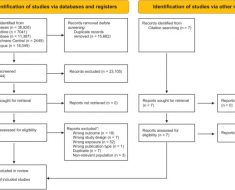
While having a child attend a private school or school with above-average instructional quality was associated with better mental health of parents during the COVID-19 pandemic, hybrid school was associated with worse parental mental health, as was working from home, finds a new study from the Brown School at Washington University in St. Louis.
The study is among the first to present the interaction of school and workplace policies and other environmental and economic effects on the mental health, hopelessness, anxiety and worry of working parents in the U.S.
“This is a piece of my research in which I genuinely connected,” said Sarah Moreland-Russell, associate professor of practice and first author of the study, “At Home and on the Brink: U.S. Parents’ Mental Health during COVID-19,” published this month in the International Journal of Environmental Research and Public Health.
“I cared for two children during the COVID-19 pandemic and definitely experienced the challenges and stress similar to many other parents across the U.S.,” she said. “This study also brings to light the gaps in family support, inequities in school quality and learning, and breaks in our system that existed prior to COVID-19 and were further exacerbated by the event.
“If there is a ‘good’ that results from the pandemic, I hope that it is in the form of policies that provide supports (financial, health, education, etc.) to families and children and that are designed to actually address and eliminate inequities in education, mental health, health and access.”
Moreland-Russell and her co-authors analyzed results of the Socio-Economic Impacts of COVID-19 Survey: United States, which was administered by Washington University’s Social Policy Institute (SPI). The survey captures a diverse array of household experiences during the pandemic through a detailed set of questions concerning both adults and children in the household.
They found several key takeaways:
- Parents across the U.S. had to navigate an ever-changing schooling and child care environment during the COVID-19 pandemic that resulted in worse mental health for many, especially those with young children; those working from home; and with inconsistent learning environment options for their children.
- Female parents were especially affected, likely due to the established imbalance in caregiving in U.S. households.
- Inequities in mental health strain were noted as those parents who were lower income and less educated experienced worse mental health.
“While a significant amount of school policy decision-making was advanced based on public health guidance, in many cases those decisions were made without acknowledging the large strain being put on working parents, who had to act as teachers and child care workers, while navigating a rapidly changing pandemic and still trying to make ends meet,” Moreland-Russell said.
Source: Read Full Article





